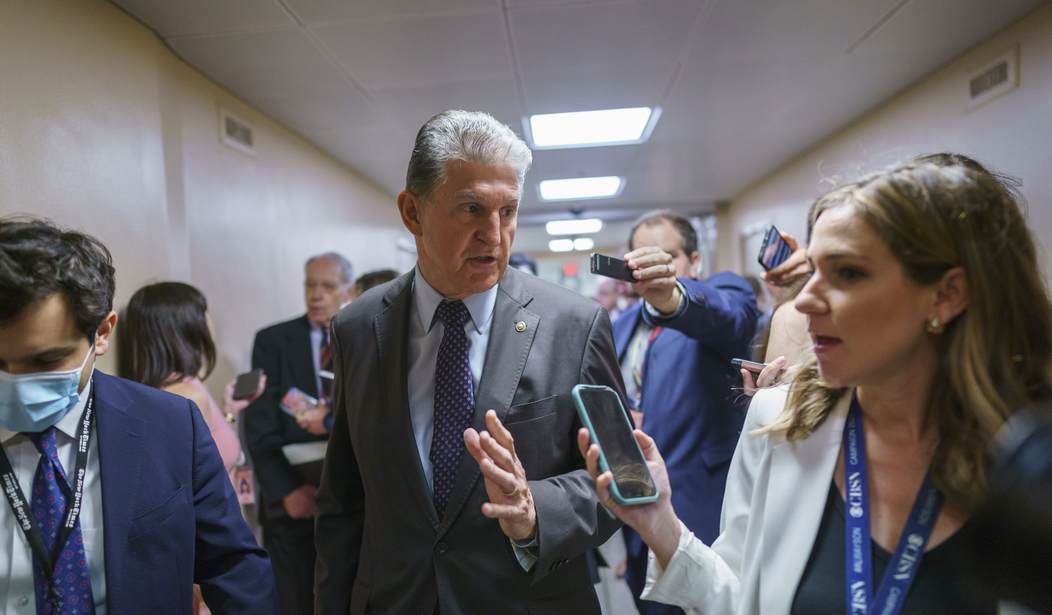Joe Biden’s bipartisan deal on the $1 trillion infrastructure bill has been bleeding GOP support since it was announced with much fanfare and ballyhoo at the end of June. Now, as the push to pass the legislation ramps up, it’s an open question whether enough Republicans will support the bill to prevent a filibuster and send the measure to the Senate floor.
Biden’s hope was that he could move the legislative process along rapidly enough that the bill’s boosters on both sides could build on the momentum generated by the initial enthusiasm for the bipartisan nature of the legislation. This appears to have failed as Republicans, taking a longer look at how the government will pay for the bill, begin to have huge doubts.
South Dakota Senator Mike Rounds spoke for many Republicans when he told Politico that there are still senators wondering what’s in the bill. “We don’t know what’s in it yet,” Rounds said. “I’m favorably impressed with what’s been done, but we’re going to wait and look at the final thing. So there’s still a lot of negotiations going on.”
Kansas Senator Jerry Moran is openly skeptical about using funds from “increased IRS enforcement” to pay for the bill. He should be. The notion that the tax agency is going to find hundreds of billions of dollars from tax-evading rich people is absurd.
Comments by those two technically supportive Republicans illustrates that, after a two-week recess, GOP support for an aisle-crossing deal with President Joe Biden is soft. The bipartisan infrastructure deal that five Senate Republicans helped sell to Biden is under harsh scrutiny from the right, testing the support of GOP centrists who will be crucial to getting the bill past a guaranteed filibuster.
The core of support from five senators that directly negotiated the deal with Democrats and the White House is solid: Mitt Romney of Utah, Lisa Murkowski of Alaska, Susan Collins of Maine, Bill Cassidy of Louisiana and Rob Portman of Ohio. A second group of GOP senators who support the concept will be critical to actually passing the bill.
“The details will matter. I think a lot of our members are going to look at: How credible are the pay-fors, how large is this?” said Senate Minority Whip John Thune. “For our members, it’s really going to come down to whether it’s all put on the debt.”
But what worries many of those Republicans who tentatively support the infrastructure bill is that passing the legislation will open the door for trillions more in spending via the reconciliation process. The “American Families Plan” could be passed before the end of summer and would cost $1.2 trillion. Then there’s “Infrastructure Part II,” which would include up to two trillion dollars more in spending.
Making Biden go through the lengthy, time-consuming reconciliation process might prevent the Democrats from passing another bill via reconciliation this session. This is significant because the Senate parliamentarian, Elizabeth MacDonough, recently ruled that Democrats would only get one more shot at reconciliation this session. If the GOP forced the Democrats to use reconciliation for the infrastructure bill, they would be unable to use it to pass the American Families Plan or Medicare expansion.
But the political fallout from standing in the way of a “bipartisan” bill might be more severe than the alternative. Each senator is weighing the consequences of playing ball with Biden or playing the obstructionist.
They don’t have much time. Minority Leader Mitch McConnell, who has not announced whether he supports or opposes the bill, says that the bill could come up for a vote in the next two weeks.
Related: McConnell Crushes Biden’s Hopes of a Supreme Court Pick in 2024
Even if the legislation gets enough Republican support to make it to the floor for a vote, its passage is by no means certain. Several radical Democrats have indicated they won’t vote for the bipartisan deal unless they have a guarantee that the rest of their legislative wish list will also be voted on.
In the end, GOP support will be vital to giving Joe Biden a huge success and will give the Democrats a massive boost going into the 2022 midterms.
Is this what the moderate Republicans really want?










